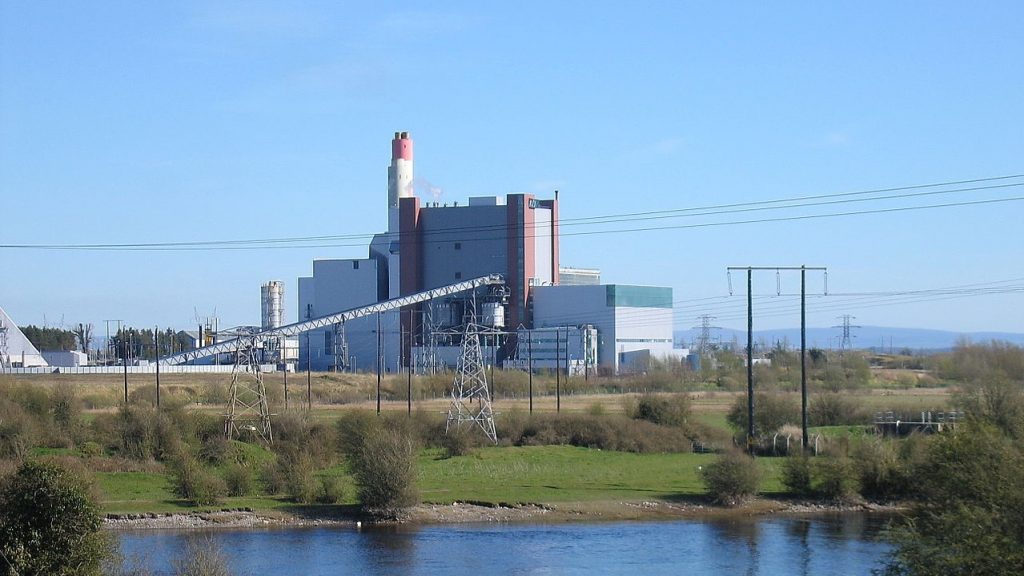Pressure grows on Govt to speed up Just Transition

July 25th, 2019
Pressure is mounting on the Government to push forward with its just transition plans after the refusal of ESB plans to convert its Shannonbridge peat plant to co-fire with biomass has left the facility’s future in doubt.
The plant in Co Offaly current burns peat to generate electricity and the ESB was seeking to convert it to co-fire with biomass from 2021 until 2027 when it would become fully biomass fuelled.
The ESB’s plans were struck down by An Bord Pleanála this week, however, largely over biodiversity, climate and supply concerns, leaving hundreds of workers in the Midlands vulnerable.
The semi-state energy company outlined the potential loss of jobs in its application for the change in the fuel supply for the plant. However, the Board’s inspector said that the ESB has known for a number of years that support for peat burning was coming to an end and that this would “result in a significant impact on employment”.
“To use the socio-economic impact of job losses at this time is unacceptable as a significant planning issue in this application to deliver on a ‘transition’ to biomass burning,” the decision reads.
Speaking yesterday, the chair of the Climate Change Advisory Council Professor John Fitzgerald said that the State also missed a beat in not planning ahead for the phase-out of coal and peat that has been signalled for decades.
If there was appropriate planning to date, he said that there wouldn’t be such “sudden job loss” as is now expected at both the ESB and its peat supplier Bord na Mona.

Just transition roadmap
The concept of a just transition recognises that we need to move from a fossil-fuel economy to a low-carbon economy in the fastest and fairest way possible.
The Government’s new climate plan outlines promises to enhance its education and training sectors in order to support a just transition for all.
“[This] will include supports for workers in vulnerable sectors and returnees to the labour market through a focus on career advice, up-skilling and re-training, as well as the development of new skills and expertise in our education and training system,” the plan states.
The Green Party said that the latest developments in the Midlands puts greater emphasis on the Government to put its Just Transition programme in place. The Greens introduced a Just Transition Bill last year which focuses on workers’ rights that is now at Second Stage in the Dáil.
Green Party leader Eamon Ryan TD said that it’s “not right” that there is now “uncertainty around some 300 jobs” in Bord na Móna. “We are seeing the unwinding of fossil fuel industries in parts of the Midlands and we need to see this as a wake-up call and plan for the future of workers.”

Economic cliff edge
Earlier this week, ESB Group of Union Secretary Willie Noone has said that it is up to the Minister for Climate Action Richard Bruton TD to take responsibility for the 300 jobs directly affected.
Mr Bruton, he said, must also ensure that the just transition does not “entail throwing workers off an economic cliff edge” with little policy in place to support them.
“With the future of Lough Ree Power Station in county Longford also on a knife-edge, the Bord na Móna Group of Unions is calling on Minister [Bruton] to take direct responsibility in finding a solution to a crisis which threatens to economically devastate the Midlands.”
People Before Profit TD Brid Smith said that proposed layoffs of permanent and temporary staff at Bord na Mona is in stark contrast to Governmental declarations about protecting workers in the peat sector.
“If Minister Bruton is serious about a Just Transition then he needs to call in the management of Bord Na Móna and tell them this isn’t on,” she said.
“We need to rapidly reduce our CO2 emissions, but if all that we can offer ordinary workers are increased carbon taxes and the loss of decent unionised jobs we will not win them to the fight against climate change.”
She maintained that workers should not be laid off and that Bord na Móna should immediately look to create jobs in the renewable sector with equivalent levels of pay and job security.

Taskforce required
Kate Ruddock from Friends of the Earth Ireland – one of the group’s that objected to the ESB’s biomass plans – said that it is “unfortunate” that the Government has failed to prepare for this transition. “A real task force needs to be set up the same way as if a multinational pulled out of Ireland,” she said.
Clare Claffey, a Social Democrat Councillor from Offaly, echoed these sentiments, calling for a “national task force with a significant budget” to ensure that workers and communities will be supported in the transition.
In its landmark report released in April, the Joint Oireachtas Committee on Climate Action (JOCCA) called for the State to establish a just transition taskforce focused on workers in the Midlands.
The Government’s climate plan, however, only calls for a review group to be set up even though a similar grouping already exists under the National Economic and Social Council.
The Committee report also called for the Government to guarantee the current pay pension and conditions of workers affected in Bord na Móna and the ESB.
One climate aware job strategy that is currently being considered by Bord na Móna is the growing of medicinal cannabis on Irish bogs as a way of replacing jobs in the Midlands.
The company also recently made a multi-million euro investment in a number of additional projects, including the growth of plants on bogland to supply the health and pharmaceutical industries. Bord na Mona says that this could create up to 800 jobs in the Midlands.
By Marianne Foody







